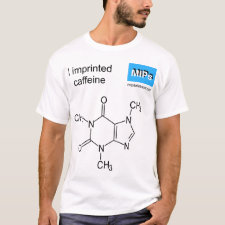
Authors: Hu R, Tang R, Xu JY, Lu F
Article Title: Chemical nanosensors based on molecularly-imprinted polymers doped with silver nanoparticles for the rapid detection of caffeine in wastewater.
Publication date: 2018
Journal: Analytica Chimica Acta
Volume: 1034
Page numbers: 176-183.
DOI: 10.1016/j.aca.2018.06.012
Alternative URL: http://www.sciencedirect.com/science/article/pii/S0003267018307578
Abstract: Caffeine is a common pharmaceutical and personal care product pollutant in wastewater. This work offers rapid and single-step detection of caffeine in an aquatic matrix based on high performance surface-enhanced Raman scattering (SERS). Novel chemical SERS nanosensors were developed employing molecularly-imprinted polymer (MIP) particles loaded with Ag nanoparticles (AgNPs) using precipitation polymerization to form AgNPs@MIP nanocomposites. Theophylline was applied as a dummy template molecule in the synthesis process due to its high structural similarity with caffeine and greater availability. The nanocomposite was characterized by Fourier transform infrared spectroscopy(FTIR), X-ray diffraction(XRD), and ultraviolet-visible (UV-vis) spectroscopy. Static and kinetic adsorption testing demonstrated the specific affinity of AgNPs@MIP nanocomposites for caffeine and a rapid adsorption equilibration rate. Moreover, a simple solid phase extraction cartridge comprising AgNPs@MIP nanocomposites as adsorbents (AgNPs@MISPE), a syringe, and a removable microporous membrane were employed to detect the SERS signal of caffeine. The AgNPs@MISPE was used to detect caffeine with excellent uniformity (relative standard deviation, RSD = 4.8%) and good repeatability (RSD = 8.7%). The separation and detection processes were integrated into a single step, and the overall analysis time was 23 min. The detection limit was 100 ng L-1, which is less than the caffeine content reported in many rivers. The experimental results demonstrate that the proposed chemical nanosensors are a low-cost and reliable tool for the rapid screening of caffeine in wastewater or other aquatic matrices
Template and target information: caffeine
Author keywords: AgNPs@MIP nanocomposites, AgNPs@MISPE-SRES, caffeine, PPCPs



Join the Society for Molecular Imprinting

New items RSS feed
Sign-up for e-mail updates:
Choose between receiving an occasional newsletter or more frequent e-mail alerts.
Click here to go to the sign-up page.
Is your name elemental or peptidic? Enter your name and find out by clicking either of the buttons below!
Other products you may like:
 MIPdatabase
MIPdatabase









